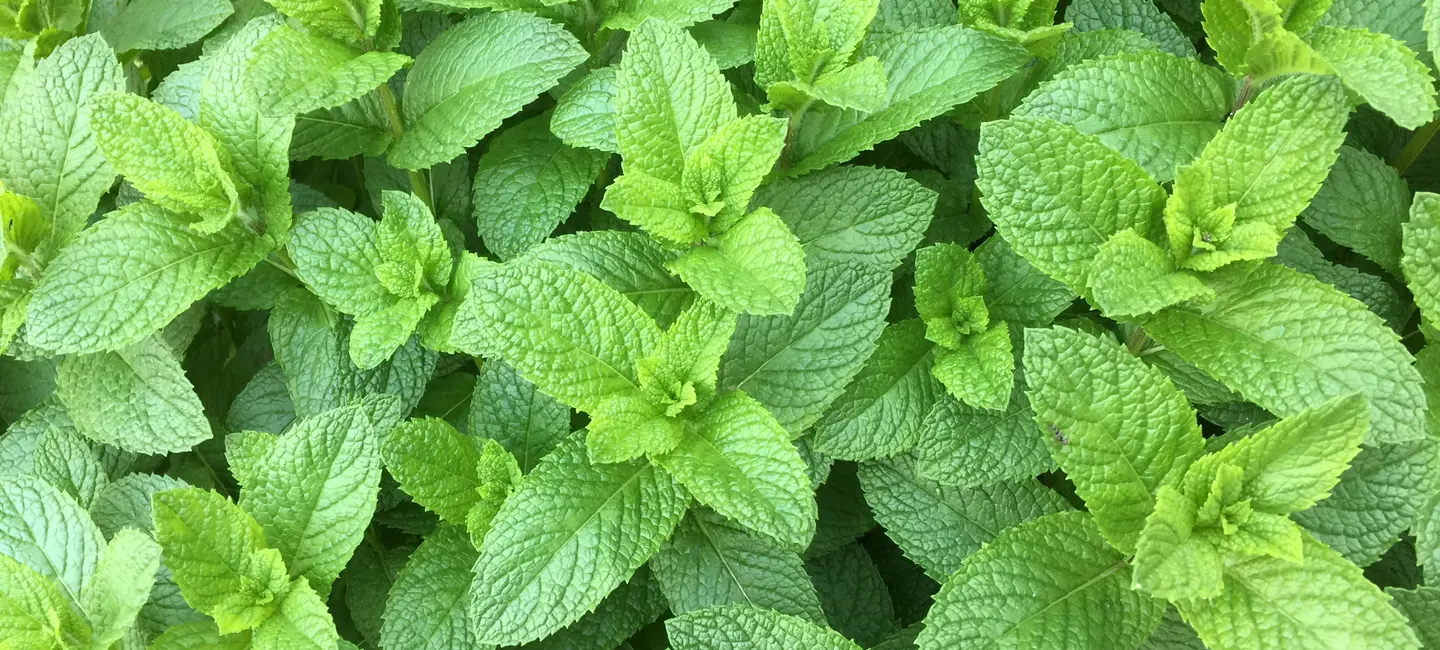
Spearmint (Mentha spicata) is a species of mint plant. It's grown for its leaves and essential oil, which is used as a flavoring in foods and cosmetics.
Spearmint oil contains chemicals that reduce swelling and affect hormone levels in the body, including testosterone. Some chemicals might also harm cancer cells and kill bacteria.
People use spearmint for memory, digestion, osteoarthritis, nausea and vomiting after surgery, and many other conditions, but there is no good scientific evidence to support these uses.
Don't confuse spearmint with other plants known as mint, including English horsemint, Japanese mint, peppermint, perilla, salvia divinorum, or wild mint. These are not the same.
Is It Effective?
There is interest in using spearmint for a number of purposes, but there isn't enough reliable information to say whether it might be helpful.
Is it Safe?
When taken by mouth: Spearmint and spearmint oil are commonly consumed in foods. Spearmint is possibly safe when used as a medicine, short-term. It's usually well tolerated.
When applied to the skin: Spearmint is possibly safe. It might cause an allergic reaction in some people, but this is rare.
Special Precautions & Warnings:
Pregnancy: Spearmint and spearmint oil are commonly consumed in foods. But spearmint is possibly unsafe when taken by mouth in large amounts during pregnancy. Very large doses of spearmint tea might damage the uterus. Avoid using large amounts of spearmint during pregnancy.
Breast-feeding: Spearmint and spearmint oil are commonly consumed in foods. There isn't enough reliable information to know if larger amounts of spearmint are safe when breast-feeding. Stay on the safe side and stick to food amounts.
Kidney disorders: Spearmint tea might increase kidney damage. Using large amounts of spearmint tea might make kidney disorders worse.
Liver disease: Spearmint tea might increase liver damage. Using large amounts of spearmint tea might make liver disease worse.
Medications that can harm the liver (Hepatotoxic drugs)
Interaction Rating=Moderate Be cautious with this combination.
Spearmint might harm the liver. Some medications can also harm the liver. Taking spearmint along with a medication that can harm the liver might increase the risk of liver damage.
Sedative medications (CNS depressants)
Interaction Rating=Moderate Be cautious with this combination.
Spearmint might cause sleepiness and slowed breathing. Some medications, called sedatives, can also cause sleepiness and slowed breathing. Taking spearmint with sedative medications might cause breathing problems and/or too much sleepiness.
Herbs and supplements that might harm the liver: Spearmint might harm the liver. Taking it with other supplements that can also harm the liver might increase the risk of liver damage. Examples of supplements with this effect include garcinia, greater celandine, green tea extract, kava, and kratom.
Herbs and supplements with sedative properties: Spearmint might cause sleepiness and slowed breathing. Taking it along with other supplements with similar effects might cause too much sleepiness and/or slowed breathing in some people. Examples of supplements with this effect include hops, kava, L-tryptophan, melatonin, and valerian.
There are no known interactions with foods.
Spearmint extract has most often been used by adults at a dose of 900 mg by mouth daily for up to 90 days. Spearmint tea has most often been used as two cups daily for up to 16 weeks. Speak with a healthcare provider to find out what dose might be best for a specific condition.
Curled Mint, Fish Mint, Garden Mint, Green Mint, Hierbabuena, Huile Essentielle de Menthe Verte, Lamb Mint, Mackerel Mint, Menta Verde, Mentha cordifolia, Mentha crispa, Mentha spicata, Mentha viridis, Menthe Verte, Menthe Crépue, Menthe Douce, Menthe à Épis, Menthe Frisée, Menthe des Jardins, Menthe Romaine, Native Spearmint, Oil of Spearmint, Our Lady's Mint, Pahari Pudina, Putiha, Sage of Bethlehem, Spearmint Essential Oil, Spire Mint, Yerba Buena, Yerbabuena.
Information on this website is for informational use only and is not intended to replace professional medical advice, diagnosis, or treatment. While evidence-based, it is not guaranteed to be error-free and is not intended to meet any particular user’s needs or requirements or to cover all possible uses, safety concerns, interactions, outcomes, or adverse effects. Always check with your doctor or other medical professional before making healthcare decisions (including taking any medication) and do not delay or disregard seeking medical advice or treatment based on any information displayed on this website.
© TRC Healthcare 2024. All rights reserved. Use and/or distribution is permitted only pursuant to a valid license or other permission from TRC Healthcare.
